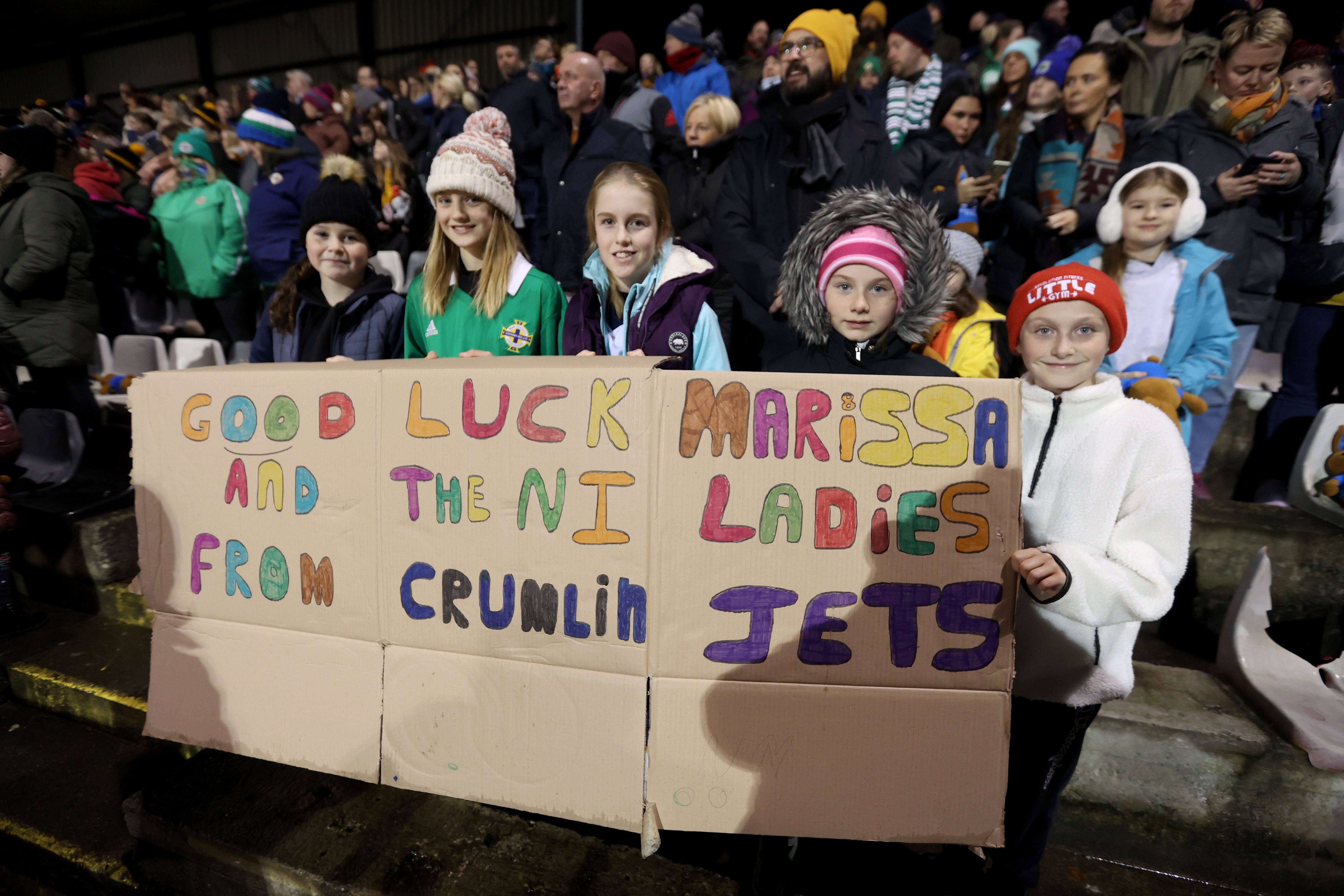Stadia funding scheme is ‘crucial for boosting women in football’
The Assembly Communities Committee heard that great progress has been made on boosting female participation in football.

The long-awaited scheme to upgrade football stadia in Northern Ireland will be a crucial part of the development of women’s football in the region, an Assembly committee has been told.
Gerard Lawlor and Steven Mills from the Northern Ireland Football League (NIFL) appeared before the Communities Committee on Thursday to discuss the promotion of women’s football.
Asked by Alliance Party MLA Kelly Armstrong about what the Assembly committee should prioritise to aid the development of the women’s game, he was unequivocal.
“It is sub-regional. It is genuinely that, honestly,” he said.
“It is about giving young boys and girls the changing facilities that they require, toilet facilities.
I think there's a cultural element too if we changed from 50 supporters to 12,500 or more. Clearly, the mindset has changed. Women are a part of football more than they have ever been before. And everybody recognises that
“Our clubs all play a part in the community and I believe clubs should be playing a part in crèches in the morning and, for OAPS, activities and bingo in the evening and such things. It’s facilities.
“We often see sub-regional about footballers and professionalism and the men’s game. That’s not what this is about. This is really about our clubs playing a role in their communities and being able to develop.
“Sub-regional is the biggest gift this committee, or through the minister, could give to sport and that’s what we’re crying out for.”
That funding programme has been embroiled in some controversy, after Communities Minister Deirdre Hargey announced she would be unable to progress the £36.2 million scheme to redevelop local sub-regional football stadia due to the absence of a functioning Executive following the resignation of the DUP’s Paul Givan as First Minister.
The news was greeted with disappointment by footballing groups in Northern Ireland.
The comments came during a wide-ranging set of hearings on women in sport.
NIFL said that despite significant progress in recent years, more work is needed to encourage and support women in football.
Women’s football in Northern Ireland received a boost last year, when the ladies’ squad made history by qualifying for the Euro 2022 tournament.
That unprecedented success in qualifying for a major tournament was repeatedly referenced by politicians at the committee on Thursday, with members heaping praise on the team.
So currently women are not able to earn a living from football in this country. We have taken strides and worked with the clubs and got everyone to a point where for the first time in the 2023 season, we will have professionalism
Footballing officials pointed to significant strides made in recent years, with large crowds attending matches and more opportunities for coverage on TV.
Steven Mills, the chief operating officer at NIFL, said it was important that more women were in leadership roles in the organisation.
“We are getting better at giving them a voice and supporting them. There’s certainly more work to be done,” he said.
Mr Lawlor said a key milestone will be reached next year when, for the first time, female footballers in Northern Ireland will be afforded professional status.
“So currently women are not able to earn a living from football in this country,” he said.
“We have taken strides and worked with the clubs and got everyone to a point where for the first time in the 2023 season, we will have professionalism.”
He said five of the main Northern Ireland clubs have a ladies’ section, while others are affiliated to a ladies’ team.
At the same committee later on Thursday morning, the Irish Football Association (IFA) said the ladies’ game is the fastest growing part of the sport.
More than 12,500 people are expected to gather in Windsor Park next month when the Northern Ireland team plays England in April as part of the World Cup qualifying campaign.
“I think there’s a cultural element too if we changed from 50 supporters to 12,500 or more. Clearly, the mindset has changed. Women are a part of football more than they have ever been before. And everybody recognises that,” IFA chief executive Patrick Nelson said.
IFA president Conrad Kirkwood said female referees are now operating at a high level within football in Northern Ireland.
It is no longer a “novel” sight, he said, and women referees are judged on their performance, not on their gender.
Angela Platt, who was appointed the director of women’s football in the IFA last year, said she believed that funding was secure for some of the key programmes encouraging participation in sport among young women.
“It’s my job to ensure that the continued investment in those programmes continues beyond its current life cycle,” she told the committee.
Bookmark popover
Removed from bookmarks